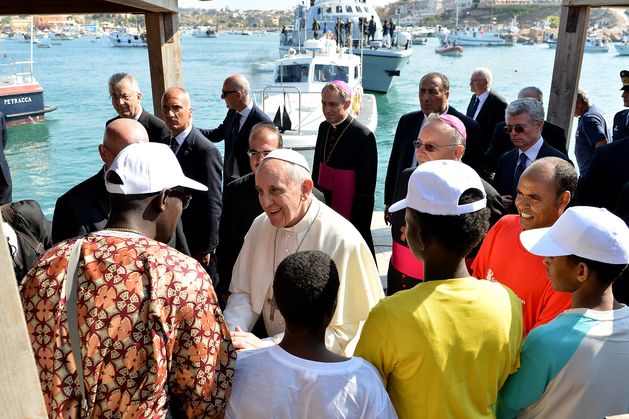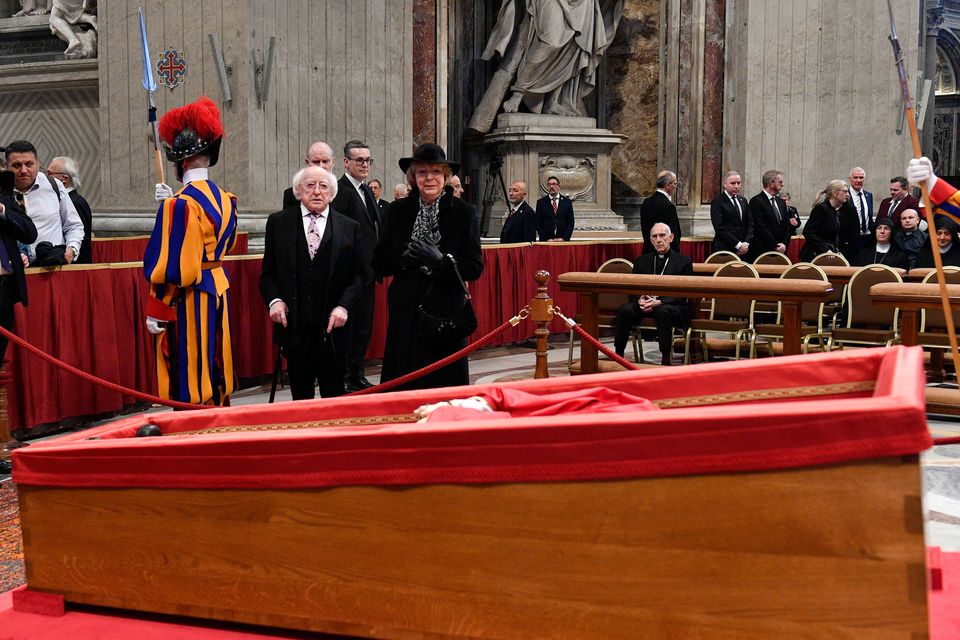In the congregation will be US president Donald Trump, representing one of the most powerful countries on earth, and Ukraine’s president Volodymyr Zelensky, representing one of its most oppressed.
Francis was a passionate opponent of war. Through moral weight and soft power, he tried to give voice to those silenced by oppression and fear.
His campaigns in supporting migrants put him at odds with many intent on closing their borders. In 2013, on the Italian island of Lampedusa – a key landing point for migrants – he famously denounced the “globalisation of indifference”. He believed that in our globalised world, people had become “used to the suffering of others” and could no longer “weep over cruelty”.
In his last address from St Peter’s Basilica on Easter Sunday, he attacked the “deplorable humanitarian situation” in Gaza.
He implored Israel and Hamas to “call for a ceasefire, release the hostages and come to the aid of a starving people that aspires to a future of peace”.
“Children were bombed. This is cruelty, not war,” he said after Israeli attacks on Palestinians.
President Michael D Higgins and his wife Sabina pay their respects to Pope Francis in St Peter’s Basilica. Photo: Vatican/Maxwells
While expressing sympathy for Israeli victims and hostages, he also suggested Israel’s subsequent attacks in Gaza and Lebanon were “immoral” and disproportionate.
“Pope Francis condemned what happened on October 7, but he was clear also that what happened does not justify what has been happening since,” said Wadie Abunassar, who leads a group that represents Christians in Israel and the Palestinian territories.
While most major nations will send their heads of state or government to Francis’s funeral today, Israel will be represented only by its ambassador to the Vatican.
Francis was deeply pained by the plight of all war-torn countries across the world, saying: “May peace come at last to martyred Ukraine, Palestine, Israel, the Democratic Republic of Congo, to Myanmar, to South Sudan,” he prayed recently in Rome.
On climate change, too, he tried to stir the world’s conscience. Just before the signing of the landmark Paris Agreement on climate change, he sought to frame the crisis as a moral and spiritual issue.
He saw it as a moral scandal perpetrated on the poor by the wealthy, according to Timothy Byrnes of Colgate University.
In his own life, Francis spoke of harbouring “a dogmatic certainty” that “God is in every person’s life”. No one was excluded. “Even if the life of a person has been a disaster, God is in this person’s life. You must try to seek God in every human life,” he pleaded.
All those who mourn him today will hope that the vital pulse of compassion that Francis strove to stir can be sustained.
#Irish #Independents #view #Remember #Franciss #compassion #laid #rest #today








